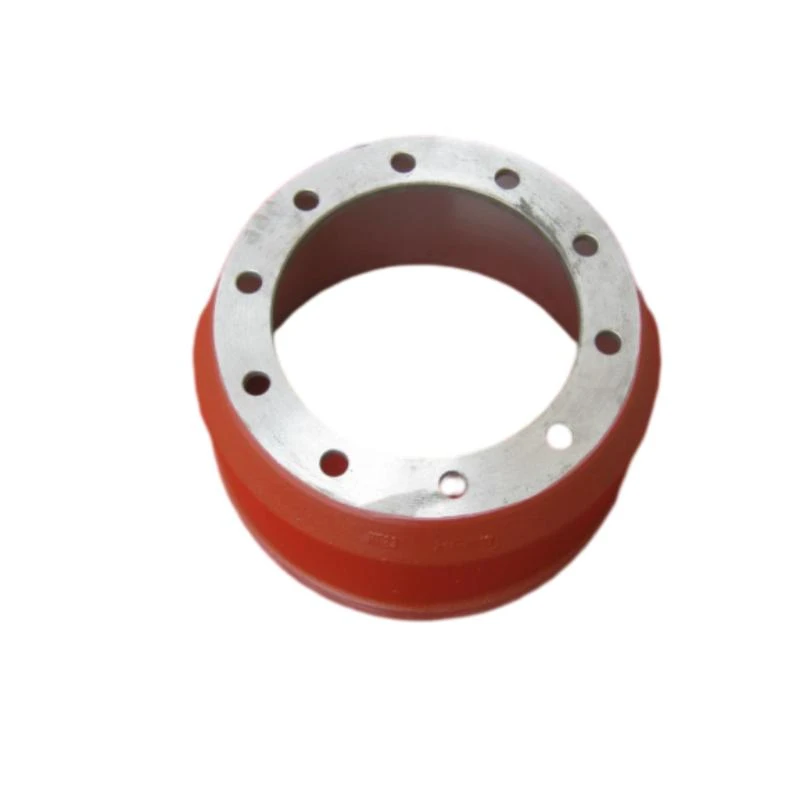Dec . 01, 2024 11:08 Back to list
Common Issues Associated with Car Brake Drums and Their Solutions
Common Problems with Car Brake Drums and How to Address Them
Brake drums are a crucial component of a vehicle's braking system, particularly in rear drum brake setups. Unlike disc brakes, which consist of a rotor and caliper, drum brakes employ a set of shoes that press against the inside of a cylindrical drum to create friction and slow the vehicle down. Although they are effective, brake drums can experience a variety of problems over time. Understanding these issues can help car owners maintain their vehicles safely and effectively.
1. Worn Brake Shoes
One of the most common problems associated with brake drums is the wear and tear of the brake shoes. As the lining on the shoes wears down due to friction, their ability to generate stopping power diminishes. Symptoms of worn brake shoes include a decrease in braking performance, a soft brake pedal feel, or even a grinding noise when braking. Regular inspections are crucial, and if you notice any of these signs, it's essential to replace the shoes promptly to avoid further damage and ensure safe operation.
2. Warped or Out-of-Round Drums
Brake drums can also become warped or out-of-round due to overheating, heavy use, or improper installation. This deformation can lead to uneven contact between the shoes and the drum, resulting in a pulsating brake pedal and a vibration felt throughout the vehicle. If you experience these symptoms, it's advisable to have the drums inspected and possibly machined or replaced. Regular maintenance and ensuring that the drum brakes are not overheated can help prevent this issue.
3. Moisture and Contamination
Moisture, grease, and other contaminants can accumulate inside the brake drum, greatly reducing the efficiency of the braking system. This contamination can cause brake shoe slippage and increased stopping distances. If the brakes feel less responsive or if you notice a squeaking noise, there may be contaminants within the drum. Cleaning the drums, shoes, and hardware can remedy this situation, but if the contamination is severe, replacement of affected components may be necessary.
car brake drum problems

4. Improper Adjustment
Drum brakes require proper adjustment to function effectively. If the brakes are too loose, it will take longer for the shoes to make contact with the drum, resulting in ineffective braking. Conversely, if they are too tight, this can lead to premature wear and overheating. If you notice that your vehicle pulls to one side while braking, it may indicate an improper adjustment. Regular tune-ups and professional checks can help maintain correct brake adjustment.
5. Brake Drum Cracks
With prolonged use, brake drums may develop cracks due to the extreme temperatures and pressures they endure. Cracks can seriously compromise the integrity of the drum, and if left unchecked, may lead to catastrophic failure during braking. If you spot visible cracks on the surface of the drum, it is crucial to replace the component immediately to ensure the safety of you and your passengers.
6. Dust and Debris Accumulation
Brake dust and debris can build up inside the drums over time, reducing operational efficiency. This accumulation can cause sticking shoes, which may lead to overheating and decreased responsiveness. Keeping the brake area clean through regular inspections and maintenance can help mitigate this issue.
Conclusion
Understanding the common problems associated with car brake drums helps vehicle owners take proactive measures to ensure their safety on the road. Regular inspections by a qualified mechanic, timely replacement of worn components, and proper care can significantly extend the life of your brakes and improve overall performance. Remember, when it comes to braking systems, it’s always better to address issues early rather than face potentially dangerous consequences later. If you experience any signs of brake drum problems, don't hesitate to consult a professional to ensure your vehicle remains safe and reliable.
-
Your Brake Drum Man: Premium & Reliable Brake Drums for Sale
NewsAug.18,2025
-
ROR Web Development: Build Fast, Scalable, Secure Apps
NewsAug.17,2025
-
Scania Brake Drums: OEM Quality for Optimal Safety & Durability
NewsAug.16,2025
-
R.V.I: Advanced Remote Visual Inspection for Precision
NewsAug.15,2025
-
Discover HYUNDA: Innovative Vehicles, Equipment & Solutions
NewsAug.14,2025
-
R.V.I: Unlock Advanced Insights & Real-time Performance
NewsAug.13,2025
